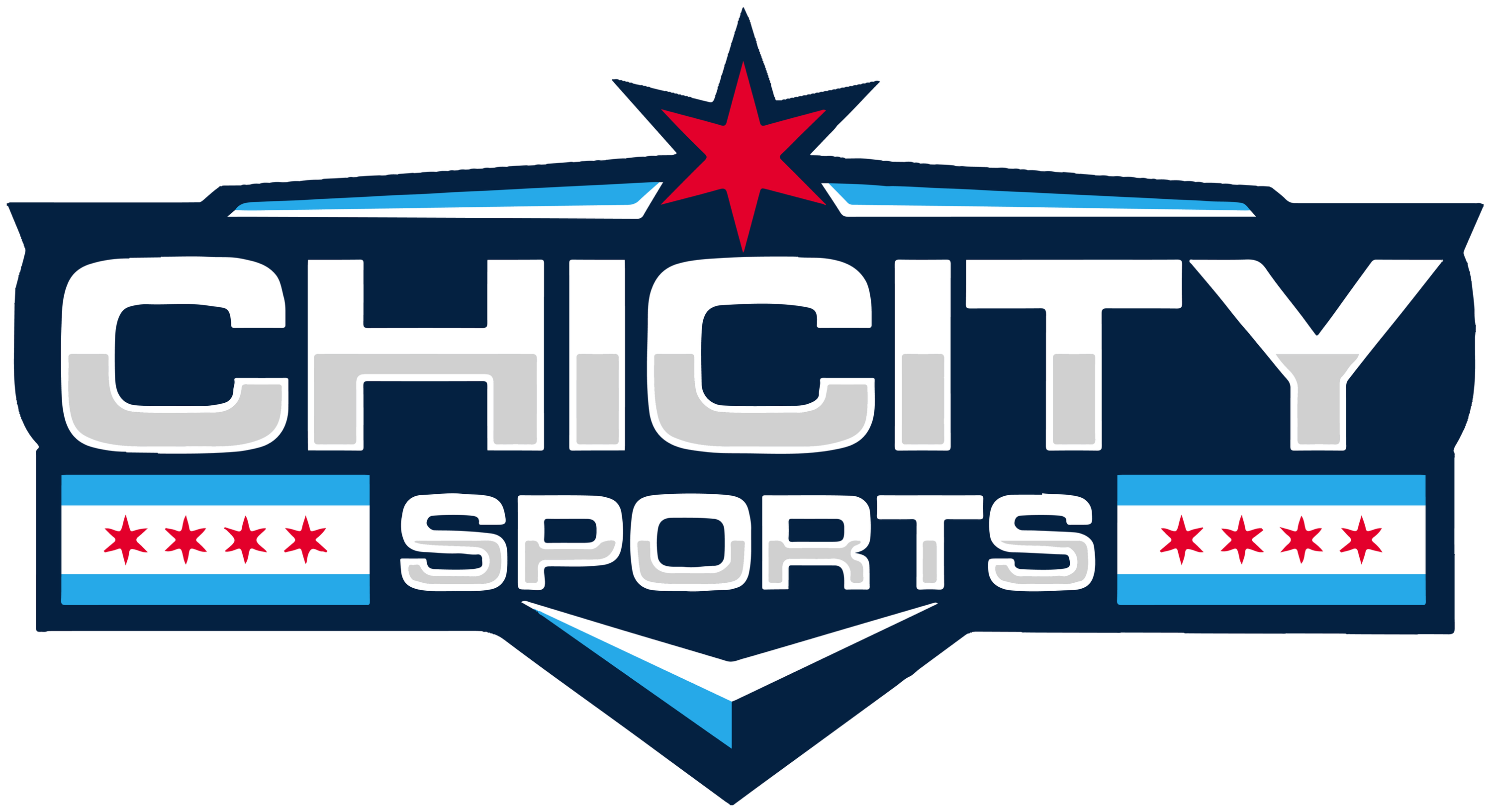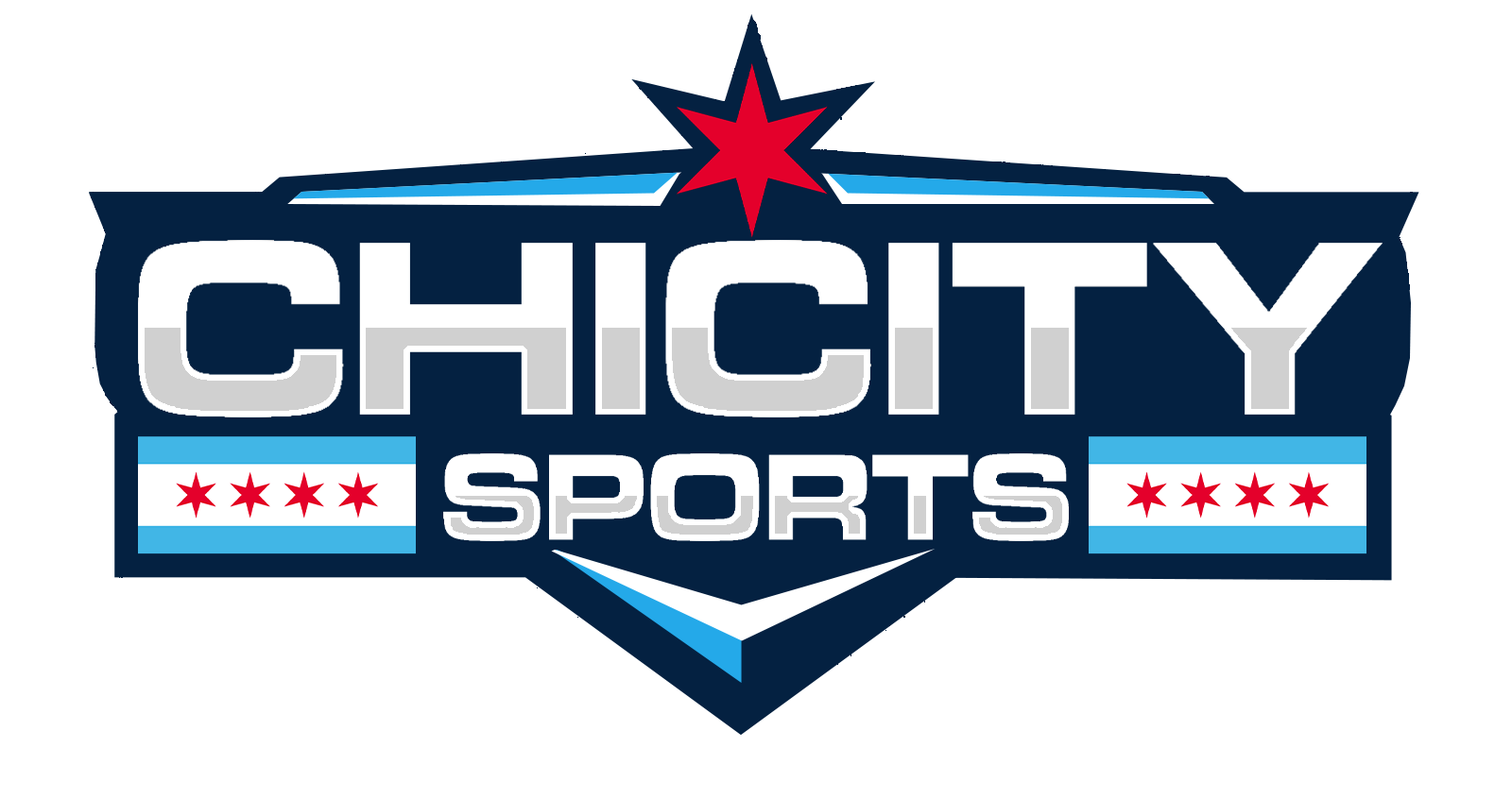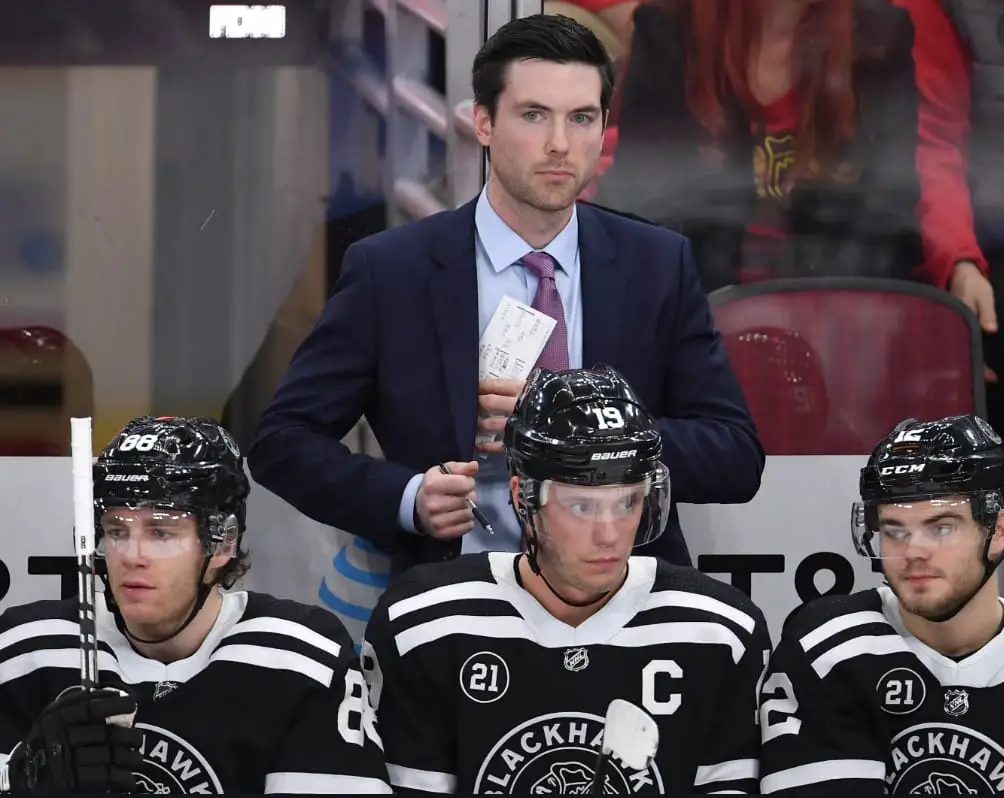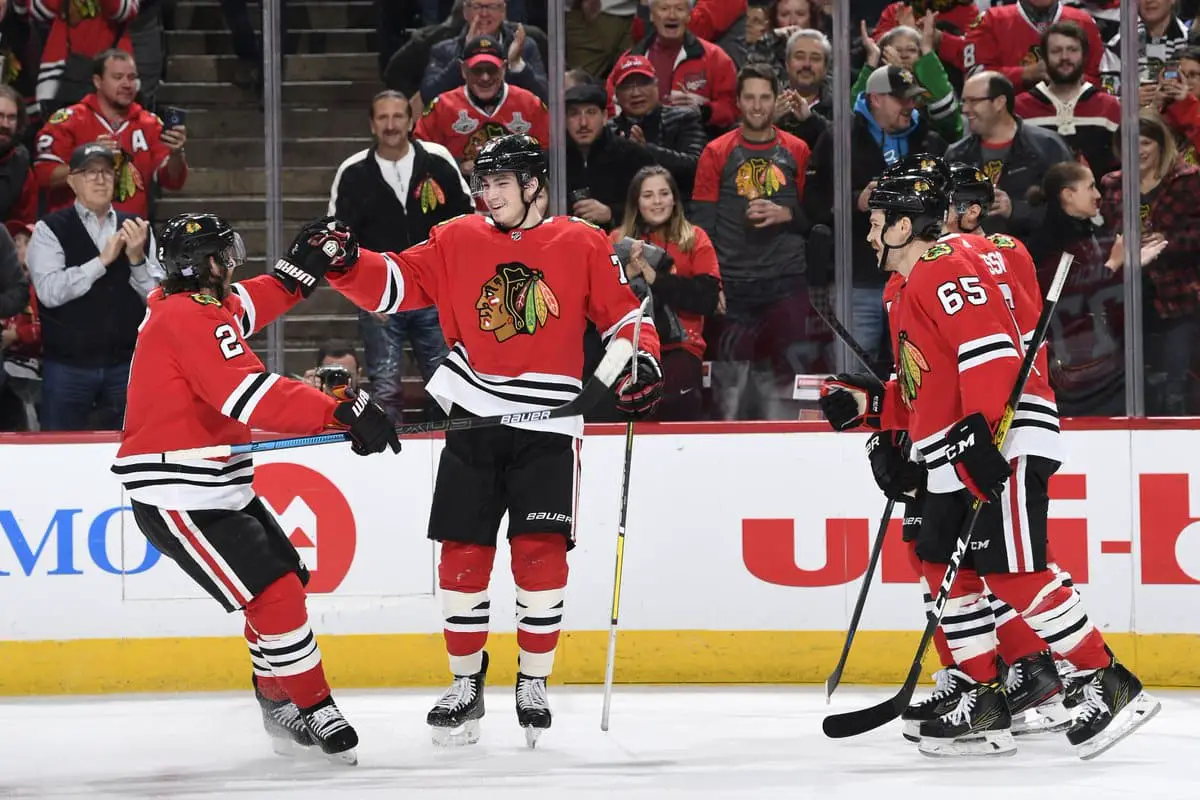When former coach Joel Quenneville was fired in early November in 2018, the Blackhawks were 15 games into the season with a 6-6-3 record. In spite of a decade-long tenure which resulted in 3 Stanley Cups, the front office had determined a new direction was needed.
After all, the last 3 years of Coach Q’s occupancy had ended with an embarrassing sweep against the Nashville Predators in Round 1 of the 2017 playoffs; followed by two subsequent years of failing to make the playoffs all together.
“Sometimes, as painful as it is, you need a fresh start,” Hawks President John McDonough said.
Hawks general manager Stan Bowman would also go on record at the time, stating his belief that this was a playoff-caliber team. Of course, Bowman needed to say this, never minding an extremely lackluster off-season in which he acquired sub-par free agents at best in Chris Kunitz, Brandon Manning, Cam Ward, and Brandon Davidson. This was a playoff-caliber team, even though none of these acquisitions would last past one year. Inevitably, the Hawks would once again fail to make the playoffs with both the roster Bowman had assembled and the coach he had inserted to replace Quenneville.
This year was supposed to be different.
With an entire training camp and pre-season, Jeremy Colliton would have ample opportunity to implement his system, compared to when he was hired on the fly mid-season of last year. In stark contrast to Bowman’s 2018-2019 off-season acquisitions, Calvin De Haan, Robin Lehner, and Andrew Shaw were all big-name players brought in to make a substantial and lasting impact. Bowman had now provided Colliton with legitimate top-six forward and top-four defensive options, in addition to acquiring the best free-agent goaltender on the market. With Colliton’s fresh voice and a truly revamped roster, this was a team designed to make the playoffs.
Instead of a “fresh start” this season, the Blackhawks have been a mirror image of last year’s team, if not worse. Compared to when Quenneville was fired, the Blackhawks hold an even poorer record of 5-7-3 under Colliton. Although good in spurts, the power play has been inconsistent and is currently ranked 23rd; with the penalty kill ranked 20th. For a team that has always thrived offensively, they are tied for second-fewest in goals scored with 38; averaging just 30.5% shots per game, which ranks them 21st league-wide. The Hawks are also averaging the second-highest percentage of shots against per game at 35.8%.
Since being hired, Colliton has implemented his man-on-man scheme, replacing Quenneville’s zone defense. The results have been mixed at best and disastrous at worst. Hawk forwards and defensemen seem as confused as ever with regard to their assignments, leaving opposing players wide-open on the doorstep. Puck-watching and tap-in goals-against have become all too commonplace. It was understandable why a system change would be difficult to implement mid-season, but the fact the Hawks are still struggling this badly under Colliton’s tutelage may be a reflection of the coach’s ability to teach his players. Moreover, the Blackhawks’ continued inability to “start games on time” begs the question as to whether Colliton can adequately prepare his players and command the room. After all, this is a coach whose playing career is microscopic compared to the decades-long-combined, multiple-Cup-winning veterans on this team. If Quenneville had “lost” the room, will Colliton ever be able to command it?
The obvious argument as to why Colliton should be fired is the fact that this team looks just as lost as it ever did under Quenneville. The deciding factor though will depend on perspective. From a fan’s view, if a coach should be fired, he should be fired; but from an organizational standpoint, it’s not always as simple. The optics of firing a hall-of-fame coach in Quenneville, only to fire his wet-behind-the-ears replacement one year later, will surely affect the organization’s course of action.
For example, will the front office choose to give Colliton a longer leash, considering this is his first full year as coach? Firing him mid-season at precisely the same time they fired Quenneville would not reflect well on both the front office, and particularly, Stan Bowman. For all intents and purposes, Colliton is Bowman’s hire – it’s doubtful he and/or the organization would want to admit a mistake so soon after making it.
Timing is always taken into great consideration when hiring/firing, as evident by the fact that even though Q could have been fired before last season began, he was fired just 15 games into the year. This was no accident and served two purposes: to galvanize a floundering Blackhawks team with the hope of salvaging the season; and to place the blame squarely on the coach’s shoulders.
If Colliton is fired now, however, it would have the opposite effect. Team morale would be snuffed, as it would signal to this current core they are yet again responsible for another coach’s downfall. The blame would be directed more so on the players, which would only exacerbate the team’s decline. In turn, the firing would signal that Bowman himself made a mistake by hiring Colliton in the first place, while disproving the notion that the prior year’s failure was Quenneville’s fault.
Even if the right move is to fire Colliton (instead of and/or in addition to Bowman, but I digress), the organization may not do so until it is convenient. It would make more sense – from a public relations standpoint – to fire Colliton once the year is over. That way, the organization can say they gave him a fair chance (one-full year); and they can mitigate any fallout from relieving two head coaches in back-to-back years. Relieving a coach in the off-season is not only less noticeable from a PR perspective; it’s also less of an indictment on the players themselves.
Would management really want to send the message to an already shell-shocked team that they are responsible for yet another coach’s demise? They might, if the goal is to persuade the core players into removing their no-movement clauses, which may be just as necessary as anything.
For More Great Chicago Sports Content
Get the latest Chicago sports news, analysis, and breaking stories on the Bears, Bulls, Blackhawks, Cubs, White Sox, Sky, and more! Tap the star to add us to your favorites on Google News, so you never miss a story on your favorite Chicago teams.
Follow us on Twitter at @chicitysports23 for more great content. We appreciate you taking time to read our articles. To interact more with our community and keep up to date on the latest in Chicago sports news, JOIN OUR FREE FACEBOOK GROUP by CLICKING HERE





2 Comments
stan bowman and the coach need to go. bowmans rationale beginning with attaching tevo to rid the organization of the bickell contract that only had one more year to go and subsequent trade of panarin. the habit of trading players and then trading for them again seems pointless. also this new trend of going after high draft picks that have not played to their potential and thinking a change of scenery will help is not sound reasoning. coach q should have not been fired. old defensemen and over the top contracts and the fact that kaner and tazer and crow need quality players around them. if coach q had to go a veteran coach should have been selected.
Both Bowman and Colliton need to go. Firing coach Q was one of the biggest mistakes this organization has EVER made.